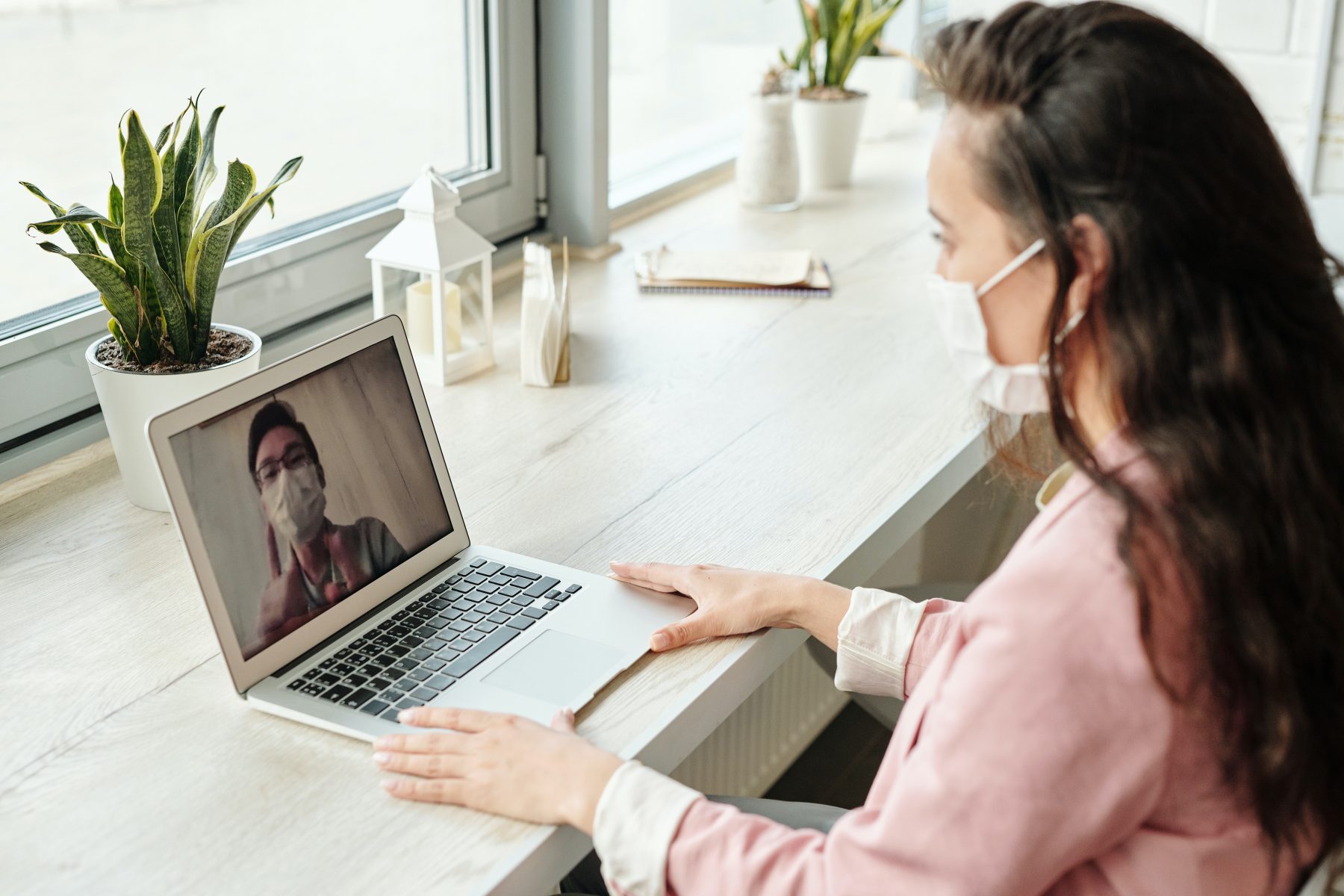
By Sandra Wartski, PsyD, CEDS
Silber Psychological Services, Raleigh, North Carolina
2020 proved to be an unusually challenging year for many reasons, and most clinicians have noticed that symptoms have become much more severe. For our clients with eating disorders, the challenges of increased isolation, fewer meal routines, more time alone with the mirror, and social media posts such as “Be careful to not gain the Quarantine 15 weight”* have created even more distress.
Fortunately, some clients have been able to use this extraordinary time to approach their recovery in new and positive ways. The following cases demonstrate some of the incredible insights made by brave individuals who continue to work further through the recovery process in the midst of this often-confusing and chaotic pandemic.
Anne
“Being quarantined is kind of like being in residential treatment. I can no longer be as distracted by other things in my life, and am forced to focus more on recovery.”
“Anne” had been in treatment for a number of years, and had been making some forward progress toward decreasing restrictive eating, but she often pointed to her busy professional life as interfering with her ability to follow-through with various homework assignments and practice opportunities.
Being quarantined meant that many of her daily activities suddenly came to a screeching halt, forcing her to look at her self-care routines in a whole new way. She noticed that facing meals, time, goals, and herself was not just about not having had time to do so but was also about a strong sense of avoidance and fear. Without the usual excuses of “I don’t have time to prepare a lunch,” or “I was too tired to do any journaling about that,” she has been launched into a much different way of approaching skills we have been circling around for years. She continues to struggle to approach these skills more mindfully and openly, but the increased time away from her hectic work has allowed a whole new level of awareness and has created some cracks in old beliefs she had about the possibility of change.
Jaycee
“Having this virus has been terrible, but not being able to taste my food is so eye-opening!”
“Jaycee,” a young adult, had been stuck in binge-purge cycles for many of her teen years, and had done some good work on attempting to slow down, to savor food, and to accept fullness. However, it wasn’t until she contracted COVID-19 and had the telltale signs of no smell or taste that she was been able to suddenly experience food in a whole new way. Contracting the virus did force her to slow down and be more mindful because she was now so fatigued and sluggish, but even more importantly, Jaycee was unexpectedly forced to experiment with eating because she was hungry. Her old patterns of feeling the urge to binge on old favorites or to numb out feelings with food were abruptly shifted. She noted with amazement, “I don’t remember the last time I have eaten just for hunger!” As she has begun to feel better and is slowly beginning to have more smell and taste receptors reawakened, she has noticed that some of the old urgency to eat more mindlessly has returned. Thus, we are now working on ways to hold onto some of the epiphany moments of having the virus and figuring out ways to weave them into new ways of approaching her work toward recovery.
Lauren
“I can’t believe so many people care only about how I look!”
Despite the concern her treatment team expressed, last year “Lauren” decided last year to go ahead and have the weight loss surgery procedure that she hoped would make her more loveable and might also cure her eating disorder. Given the prescribed restrictive diet recommendations from the surgeon, who unfortunately seems not to have much understanding about EDs despite several attempted educative phone calls and letters, Lauren has lost a significant amount of weight. She has been pleased about some of the body changes; however, not surprisingly, her ED issues are now intensified and spiraling.
During the quarantine, she has not been able to see as many people in person, giving the shift to working online and so this results in her seeing family and friends much less often. Each time she sees others, she has begun to notice how they make many triggering comments, such as “You look great!” and “Keep it up!” and “What is your diet secret?” She is also noticing that they are not asking about how she is feeling and doing during this very isolating and uncertain time in our world. Although Lauren had always been driving for this type of recognition in the past and still has the toxic pursuit of thinness, the experience of hearing others focus only on the externals while ignoring her important internal world has provided some meaningful insight. This experience has been sad but sobering, and hopefully we can keep working on ways to reframe and reset some of the priorities in her life.
Living through a worldwide pandemic has been an intense experience for clinicians and clients alike, and there continues to be so much hardship and heartbreak. However, finding some of the silver linings and opportunities for growth does allow some moments of hopefulness to shine through.
*More about Reframing the Quarantine 15 (in video blog or article format): membershare.iaedp.com/video-blog-reframing-quarantine-15-by-sandra-wartski-psy-d-ceds/
